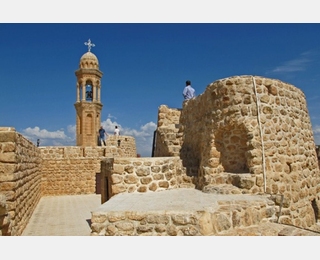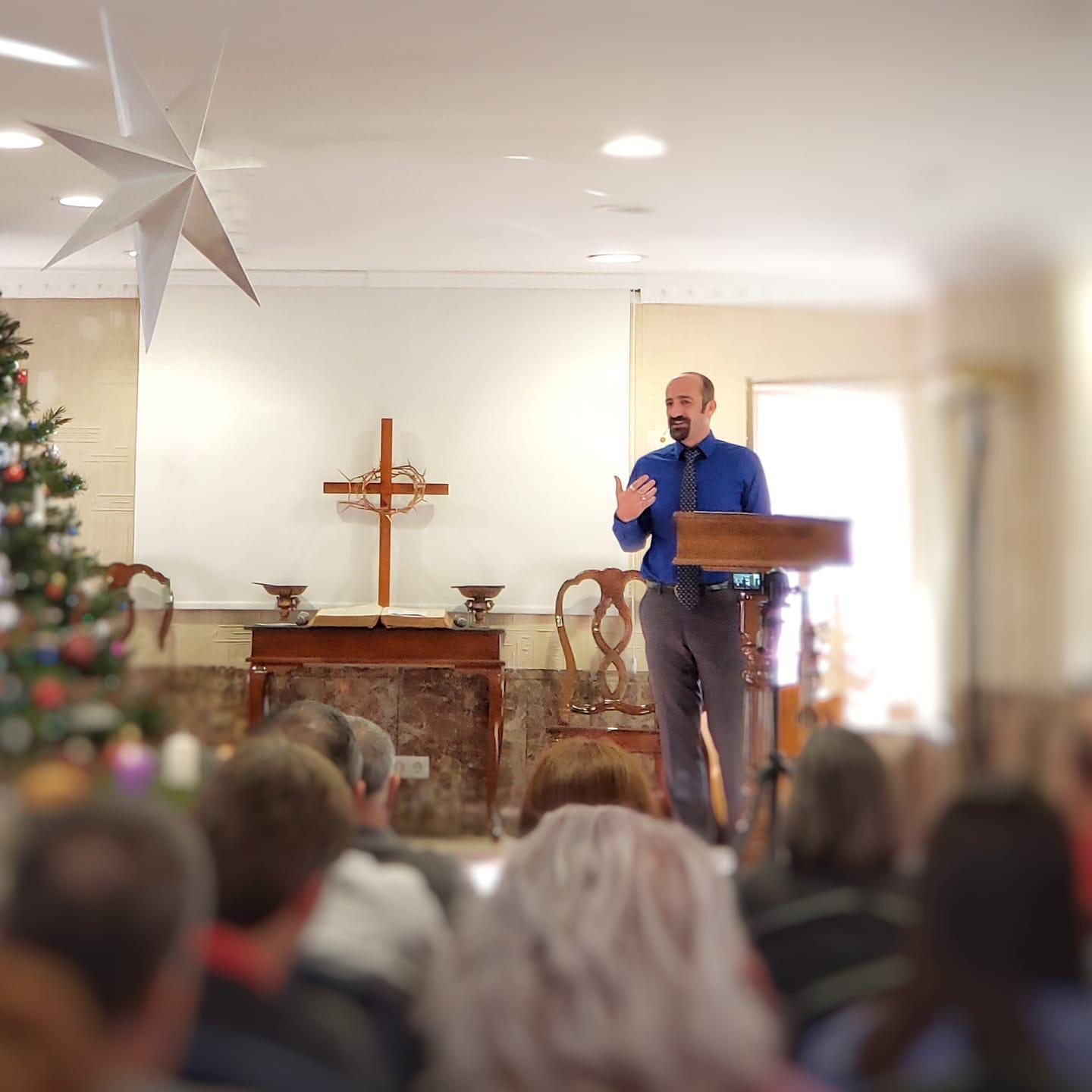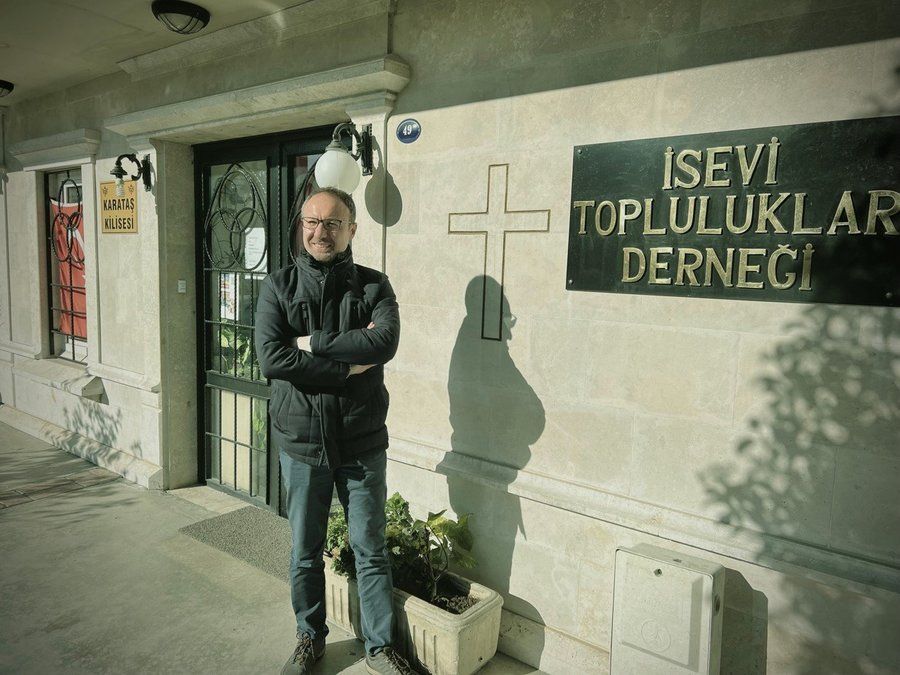Turkey
Turkey considers itself a secular state and believes that the state must control the religious practice of both the majority Sunni Muslims and the country's minorities. However, despite some legal improvements, there is less and less space for dissenters. Stefanus Alliance has several projects in the country.
Religious freedom in Turkey
The overall human rights situation in Turkey has continuously deteriorated over a number of years, especially after the failed coup attempt against President Erdogan in the summer of 2016. No religious community in Turkey enjoys full legal recognition and struggles with restrictions on the ability to have houses of worship, train their religious leaders and provide religious education. National identity cards are equipped with a rubric for religion, which often leads to discrimination in various areas of life, especially for those who leave Islam.
In many places, Turks who convert from Islam face oppression and ostracism from both family and society. Some are labeled as traitors, others risk losing their jobs. In recent years, hate crime, physical attacks and threats against minority believers have increased without the Turkish authorities taking effective action. Christians and other minorities face many prejudices and accusations through the media, school curricula and bureaucracy.
It is difficult for religious minorities to register with the authorities and obtain their own premises that they can use as places of worship. Even those religious communities that have long historical roots in Turkey, such as the Orthodox churches, which are often ethnic minorities as well, find it difficult to maintain their identity. In the east, the Assyrian minority is often subjected to pinprick attacks from extremists, which observers see as pressure on the entire minority.
It is difficult for minorities to transfer their language, cultural heritage and traditions to the next generation through education. Although the authorities have returned some of the properties and land previously confiscated from religious minorities, there are still several major ongoing land conflicts with both the authorities and the local population.
The situation varies between different regions. In traditionally conservative areas, the Protestant churches face greater problems locally. These congregations are mostly made up of converts.
Stefanus Alliance partners:
The Syrian Orthodox Church

Syriacs, or Assyrians, are descendants of a civilization in the ancient Mesopotamia that dates back to around 3500 BC. These people were among the first to become Christians, and there is an unbroken line from biblical times to the Syrian Orthodox Christians in southeastern Turkey.
The core areas, once crowded with vibrant churches and monasteries, can be found in Tur Abdin and Mardin. The 2-3,000 Syriacs still living in these areas are fighting an increasingly intense battle for survival. Here we find Stefanus Alliance's partners, led by Bishop Saliba Özman.
They work to ensure a continued Christian presence in these areas. Among other things, this involves teaching Christian faith and Aramaic, which is their mother tongue and the language of Jesus; working for understanding and dialogue with other ethnic groups and religions in the area; lobbying the authorities in Turkey and providing legal assistance to Christians who, among other things, experience land and property being taken away from them.
At times, Stefanus Alliance has also helped to provide emergency aid through the Syrian Orthodox Church to Christian refugees from Syria and Iraq. Stefanus Alliance first collaboration with the Syrian Orthodox Church was the recording of the album "Song from the Catacombs" with the choir SKRUK, which was released in 2013. You can find the songs on Spotify.
Antalya Evangelical Church

Stefanus Alliance has in recent years maintained close contact with Antalya Evangelical Church. The church was started as a small house fellowship in 1992.
Antalya Evangelical Church is a Turkish-speaking congregation that wants to show that you can be both Turkish and Christian at the same time. Most of the approximately 200 members today are former Muslims. In the spring of 2017, a new church building was officially opened in a suburb of Antalya called Lara. Stefanus Alliance has been the main sponsor of this building.
Half of the congregation meets in this building, while the other half meets in their old rented premises in the old town, also known as Kaleici. The division of the church is not due to division, but is a strategic choice to reach as many new people as possible with the gospel of Jesus. The entire congregation still gathers regularly for joint meetings in the new church building.
Stefanus Alliance's main contact is Ramazan Arkan, who has been the pastor of Antalya Evangelical Church since 2000.
Caratas Church Izmir

Project Smyrna aims to equip Christian leaders to run and start Turkish-speaking churches in the country.
Many of the first churches in Turkey (in recent times) were started by foreigners, and they have been very important in building up well-functioning churches. For several years now, we have seen foreign missionaries, priests and volunteers being deported from Turkey and refused entry into the country. Now several churches are struggling with a lack of local religious leaders to lead the churches, and there is therefore a strong need to train good religious leaders and to build churches. Project Smyrna is a response to this challenge.
The Caratas Church is one of the first Turkish churches to be planted in Turkey in recent history, and Stefanus Alliance started working with them in 2022. It has been led by Turkish leaders since the early 1980s. More than 90% of the church's members come from a Muslim background and many of them are therefore first-generation Christians. The congregation also leads and supports two Iranian churches and an Arabic-speaking church - which has a high number of refugees living in the city.
Project Smyrna aims to equip Christian leaders to run and start Turkish-speaking churches in the country. Students participate in a one-year discipleship training program, with the goal of sending them out as missionaries in their own country to fill a key role in an existing church or plant a new church. In addition, students are given the opportunity to receive a three-year theological education through a partner organization, which they can complete while serving in a church.
"In short, our goal is to magnify and expand God's sovereignty throughout Turkey, especially in the western parts of Turkey. We do this by equipping the local church, training our Christian siblings and establishing new churches through them. It will impact society, change it, and show people our Christian faith."
The Protestant Alliance
Stefanus Alliance has been working with the Protestant Alliance in Turkey since 2008. It is an umbrella organization for the small Protestant churches in Turkey.
Most of the congregations are made up of ethnic Turks who were previously Muslims. There are around 5-6,000 Protestants in the country.
Almost 50 churches are members of the Protestant Alliance. Among other things, they provide important legal guidance and advice to churches that want to be register to the authorities, and they act as a common voice against the authorities. They also monitor religious freedom-related abuses against Protestant churches. Every year, they publish an in-depth report on these abuses, and the report is used in various advocacy efforts.
The Protestant Alliance also organizes family camps and other activities to strengthen the community between Protestant Christians in the country. From 2020, Stefanus Alliance will also provide financial support for the family camps.
Our work
The Stefanus Alliance cooperates and works through local churches, organizations and individuals.